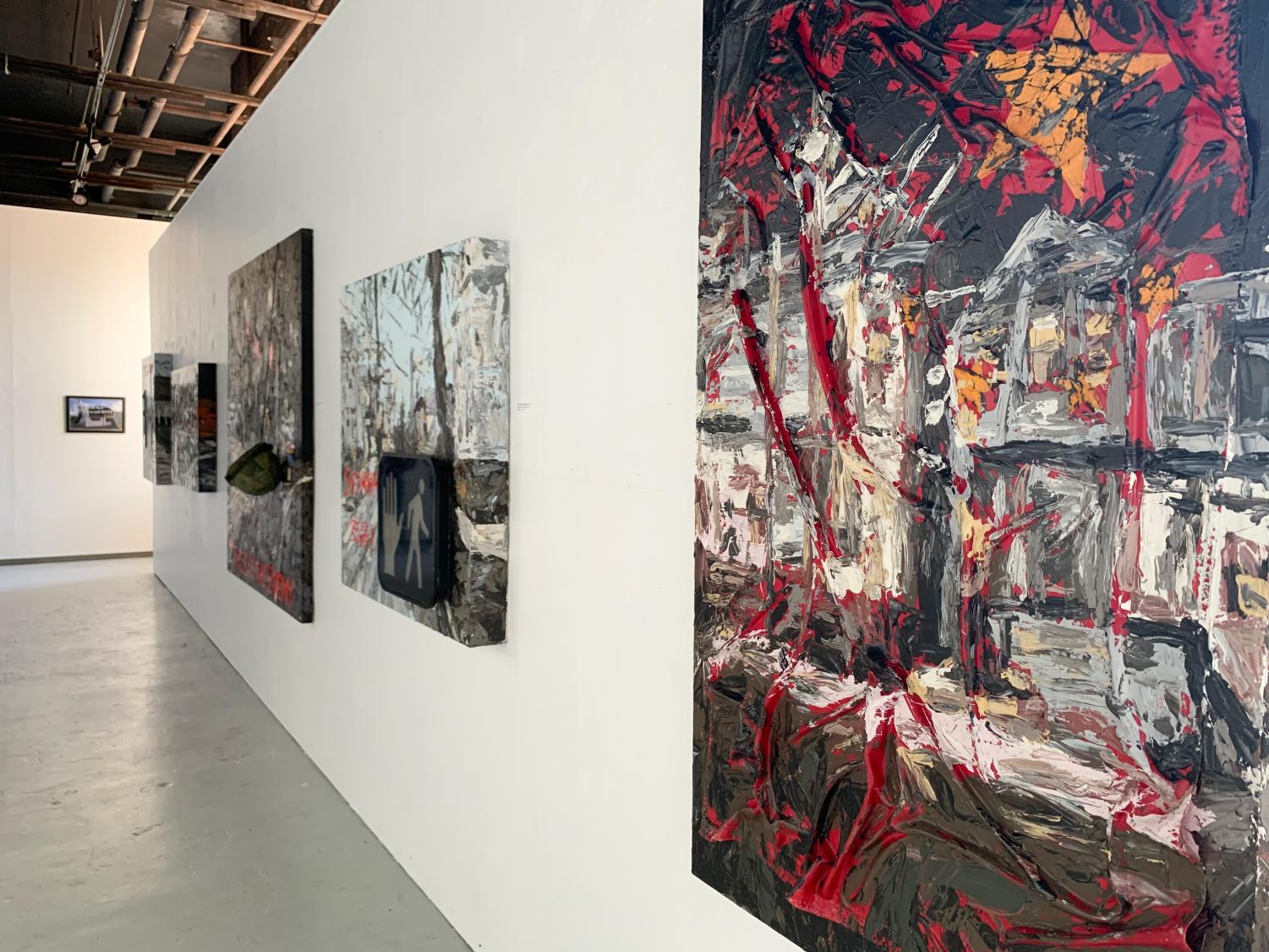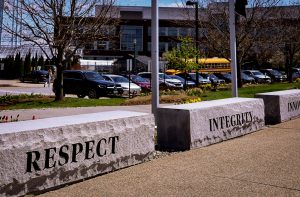The personal and political of ‘FRENZY’
November 13, 2020
Tucked away in the Colburn Gallery in Williams, abstract paintings and photography line the white walls.
The artwork is part of senior Noah Zhou’s first solo art exhibition at UVM that seeks to explore the complicated identity of being Chinese-American.
The title of the exhibition itself, “Noah Zhou: FRENZY,” is a mashup of Zhou’s legal name and artist name. The contrast represents duality within Zhou’s identity, which is explored throughout the pieces in the exhibition.

“Frenzy is the artist name I use, and they took that as the name of the exhibition and I rolled with it,” Zhou said. “I think it adds a layer of intrigue to it. I don’t really want it to be about me, I think it’s like I’m trying to talk about a broader issue and I want to be detached from it in a way.”
This exhibition is both personal and political as it examines Chinese-American identity, Zhou said. As a Chinese-American and Burlington native, Zhou incorporates both hometown landscapes and symbols tied to Asian-American conflicts and identities.
His largest painting, titled “Enemies of the State” is the first painting you see when you enter the exhibit. It features a landscape of a Burlington intersection along with bright red text and a military helmet hanging over it.
The painting is a commentary on American military presences in East Asia.
“There’s sort of this continuity of the American people viewing these conflicts as one continuous struggle against Asian people, and how that affects popular perceptions and racism you may find on the homefront,” Zhou said. “The text is a very propagandistic sort of tone with the placing and the red text.”
The Burlington landscape and colors are reminiscent of the blandness of the day to day and is meant to ground the piece in something real, Zhou said.
“The helmet is a symbol because it’s the helmet American soldiers wore in every East Asian conflict,” Zhou said. “It speaks to this continuous struggle against Asian people and how that affects popular perceptions and racism you may find on the homefront.”
A closer look at “Enemies of the State” also reveals that it was painted over photographs of war in Asian countries and baseball cards, emphasizing the American nature of the conflict.
In his Exhibition Statement, Zhou said, “celebration and practice of Chinese heritage, customs and traditions are inhibited by the stain of American racism dating back to the very introduction of Chinese individuals on US soil.”
Zhou said that he attempts to capture this dynamic by using textured mediums in his paintings.
“All of my paintings are very three dimensional,” Zhou said. “I build in a lot of objects and put things under the surface of the paint. My paintings also balance a tone of political Cold War-esque visual language and childhood playground mockery tone to it as well.”
Zhou began creating this exhibition artwork last fall with associate professor, Pamela Fraser.
Abstract expressionist artist Jasper Johns is a key influence in Zhou’s work, he said.
“In my mark making I sort of reduce the landscapes into these really heavy handed brush strokes,” Zhou said. “My goal is to project the hand of the artist and an emotional quality onto the work.”
Zhou has been incorporating social commentary into his work throughout his evolution as an artist, Fraser said.
“He was concerned with social issues even in his first-year work,” Fraser said.
Much of Zhou’s recent artistic inspiration has come from anti-Asians remarks from politicians and the president, such as calling COVID-19 the “China Virus,” said Zhou.
“People should be aware that there has been an uptick of violent crimes committed against Chinese people related to racial incidents,” Zhou. “It’s something else I’m trying to draw awareness to.”
After this exhibition, Zhou hopes to attend grad school and continue to create and teach his work to others.
“I think it’s going to be a lifelong thing for me,” Zhou said. “I’m really passionate about teaching, whether it’s at public schools or universities. I think this sort of theme will always be a part of my life and sort of what I teach to others.






